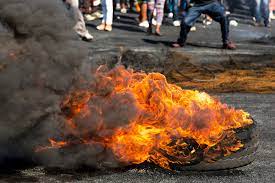Businesses operating in Africa “are grappling with an unprecedented rise in disruption, linked to protests, demonstrations and rioting,” according to a latest research by risk intelligence firm Verisk Maplecroft, which also suggests that the situation will deteriorate over the course of 2023.
The surge in civil unrest in Africa, driven by political tensions, food insecurity, and government inefficiencies threatens stability, disrupts businesses, and stirs up social and economic crises in the region, according to Verisk Maplecroft’s Civil Unrest Index. The report reveals that 36 African countries experienced an uptick in risk over the past 12 months, the largest annual increase seen in the region since the dataset launched in 2017, which underscores the mounting challenges facing businesses operating on the continent. The number of African countries now categorized as high or extreme risk for civil unrest has also risen to 37, a significant jump from 28 just six years ago.
The impacts have been felt across the continent, with the DRC (ranked 94th highest risk on the index globally), Angola (52nd) and Kenya (33rd) being among the countries that registered the sharpest declines on the index in the past year. For Africa, these global risk dynamics are placing further strain on countries that are already contending with some of the worst consequences of the Russia-Ukraine war, including deteriorating food and energy security and spiraling living costs.
As the region grapples with mounting food shortages, widespread government inefficiencies and a swathe of contentious elections, the frequency and magnitude of protests is set to increase in the months ahead. The report ultimately warns businesses to brace for an extended period of unrest across the African continent.



